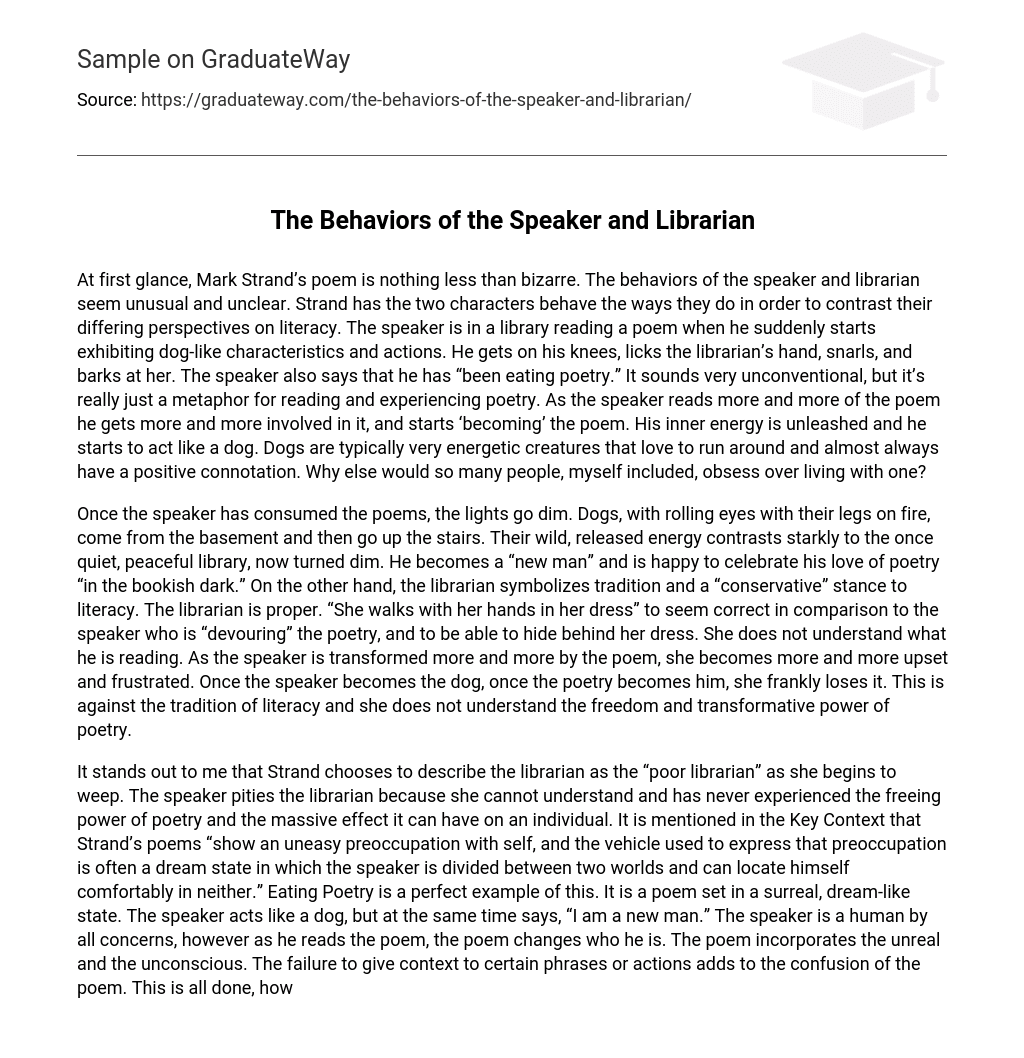At first glance, Mark Strand’s poem is nothing less than bizarre. The behaviors of the speaker and librarian seem unusual and unclear. Strand has the two characters behave the ways they do in order to contrast their differing perspectives on literacy. The speaker is in a library reading a poem when he suddenly starts exhibiting dog-like characteristics and actions. He gets on his knees, licks the librarian’s hand, snarls, and barks at her. The speaker also says that he has “been eating poetry.” It sounds very unconventional, but it’s really just a metaphor for reading and experiencing poetry. As the speaker reads more and more of the poem he gets more and more involved in it, and starts ‘becoming’ the poem. His inner energy is unleashed and he starts to act like a dog. Dogs are typically very energetic creatures that love to run around and almost always have a positive connotation. Why else would so many people, myself included, obsess over living with one?
Once the speaker has consumed the poems, the lights go dim. Dogs, with rolling eyes with their legs on fire, come from the basement and then go up the stairs. Their wild, released energy contrasts starkly to the once quiet, peaceful library, now turned dim. He becomes a “new man” and is happy to celebrate his love of poetry “in the bookish dark.” On the other hand, the librarian symbolizes tradition and a “conservative” stance to literacy. The librarian is proper. “She walks with her hands in her dress” to seem correct in comparison to the speaker who is “devouring” the poetry, and to be able to hide behind her dress. She does not understand what he is reading. As the speaker is transformed more and more by the poem, she becomes more and more upset and frustrated. Once the speaker becomes the dog, once the poetry becomes him, she frankly loses it. This is against the tradition of literacy and she does not understand the freedom and transformative power of poetry.
It stands out to me that Strand chooses to describe the librarian as the “poor librarian” as she begins to weep. The speaker pities the librarian because she cannot understand and has never experienced the freeing power of poetry and the massive effect it can have on an individual. It is mentioned in the Key Context that Strand’s poems “show an uneasy preoccupation with self, and the vehicle used to express that preoccupation is often a dream state in which the speaker is divided between two worlds and can locate himself comfortably in neither.” Eating Poetry is a perfect example of this. It is a poem set in a surreal, dream-like state. The speaker acts like a dog, but at the same time says, “I am a new man.” The speaker is a human by all concerns, however as he reads the poem, the poem changes who he is. The poem incorporates the unreal and the unconscious. The failure to give context to certain phrases or actions adds to the confusion of the poem. This is all done, however, by Strand to show that, once eaten, poetry can be disturbing and is just not understood by all.





